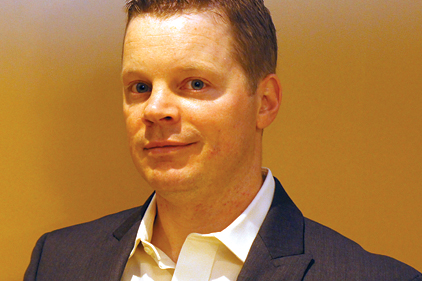
|
| Ryan Rex |
The current financial climate reflects the bubble of the real estate industry that popped during the economic collapse that began in 2007. During this collapse, home prices dropped, home foreclosures became a terrible reality for millions, and residential construction all but stopped completely. According to the U.S. Census Bureau, the bottom was hit in September 2009. Over the six years since the collapse, moving has not been a viable option for many homeowners. Consumers have been essentially holding on to what they have due to mortgages being underwater.
Home maintenance is a necessity for any homeowner, now more so than ever. Regardless of financial status, consumers will still need to maintain the building envelope of their homes, mechanical and plumbing systems, fix roof leaks, and trim their yards. Consumers today are a much savvier group than they were back in 2007 during the days of excess. People now demand more for their dollar at a much lower cost, making an already difficult market a highly competitive environment. If contractors don’t start looking for an edge, they may fall even further behind the eight ball. Educating contractors who own small businesses can fill the market void, and put confidence back in the residential construction market.
As leaders in our field, we need to change up our game to prepare for the future. The need to educate and elevate ourselves is more important than ever. We can’t expect to keep knocking down old buildings and clearing forests to build more housing developments that can’t be filled. We need to focus on what we already have to reduce consumption, while maximizing our existing resources. This means more education for us as contractors, while developing resources to help young people prepare themselves to become more versatile in the mechanical construction fields.
There are more than a few reputable educational resources to enable contractors to refine their skills. Leadership in Energy & Environmental Design (LEED) training comes to mind to help carbon footprint reduction, the Home Energy Rating System (HERS) is a great way to help homeowners gauge their consumption, Building Performance Institute Inc. (BPI) also offers a great course to help train contractors to rate residential buildings. But if these terrific resources are available, then we need to ask ourselves, why hasn’t it taken off? My answer is twofold: a lack of awareness and fear of change.
Maybe some could argue that the sustainable training available is too expensive or doesn’t meet the needs of their clients. My response to these arguments would still be the same — it starts with the contractor. We need to educate our clients as to what can best suit their needs, and if we can’t do that properly, to keep up with the times, then we’ll get left in the dust, plain and simple.
So, if taking these courses and going to school is an issue, how do we change? Does that leave construction with no form of education other than an apprenticeship? Is construction a last-resort haven for people who have no use for continuing education beyond the high school level? Let’s face it, the work smarter, not harder campaign of the 1970s did a good job of luring talent away from the trades and into colleges. Now, almost 40 years later, we have an entire generation of graduates without work, not to mention millions of others who’ve lost their jobs due to the bad economy. I believe that now is the time we start to consider a solid change for the way people look at the trades.
Creating a guideline for people to follow as a way to begin education on a micro level may be most important. Each contractor should look at their resources and identify strengths and weaknesses. Find out who on their squad is good at what. Then, instead of spending loads of money on education that may not be appropriate for a starting point, begin in-house training. Corporations have been doing this for years, so why shouldn’t we do it too?
Let’s say you own your own company. You have three to five guys on staff. One guy knows plumbing, another is a carpenter, there’s an HVAC installer, and there’s you, the entrepreneur. Asking each to hold a one-hour session per month to educate the others based on their experiences to help make your crew more efficient and team oriented could be enough to separate you from the pack, while making your company more competitive. From there, other strengths and interests can be discovered as a result. At this point, you can find out what type of continuing education each employee would be interested in tightening up. This grants you a competitive strategy, especially when focusing on sustainable building practices.
By building enthusiasm within your company, as well as camaraderie, your employees will learn to better depend on each other by understanding what the other is trying to accomplish. This, in itself, is a sustainable business model, and reflects the growing trend in our fields of study. We are all looking for longevity in a disposable world. We want to last through these hard times and prosper once again. If traditional education is too difficult, then you’ll need to adapt and overcome. Our field is becoming more technical every day, and, as that happens, some end up losing their jobs to make way for people who better understand the changes. This is what we want to stop from happening. Technology is a runaway train, this much is certain, but what we can control is our own attitudes toward change. If we can make simple changes in the way we do business and conduct ourselves daily, anything is possible.
Publication date: 3/10/2014
Want more HVAC industry news and information? Join The NEWS on Facebook, Twitter, and LinkedIn today!



Report Abusive Comment